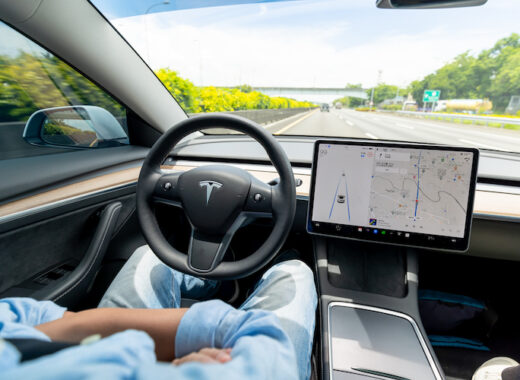The auto insurance industry has undergone a significant transformation in recent years, driven by advancements in technology and the rise of connected vehicles. One of the key developments that has revolutionized the industry is the sharing of consumers’ driving data by automakers with insurers. This practice has the potential to reshape the way insurance is priced, underwritten, and managed. In this article, we will delve into the impact of automakers sharing driving data with insurers, exploring the concerns, and potential risks associated with this trend.
What is Driving Data and How is it Collected?
Driving data refers to the information collected by sensors and devices installed in vehicles that capture various aspects of driving behavior and vehicle performance. This data can include details such as speed, acceleration, braking patterns, mileage, and even location. Automakers collect this data through advanced telematics systems embedded in modern vehicles. These systems use GPS, accelerometers, and other sensors to record and transmit data in real-time.
The collection of driving data serves multiple purposes. Automakers use it to enhance the performance and safety features of their vehicles, identify potential maintenance issues, and improve overall driving experience. Additionally, this data has become valuable for insurers as it provides a comprehensive view of a driver’s behavior, enabling them to assess risk more accurately and tailor insurance policies accordingly.
The Impact of Automakers Sharing Driving Data with Insurers
The sharing of driving data by automakers with insurers has had a profound impact on the auto insurance industry. Firstly, it has allowed insurers to gain insights into the driving behavior of their policyholders that were previously inaccessible. This enables them to move away from traditional risk assessment models based on demographic factors and instead focus on individual driver behavior. By utilizing real-time data, insurers can reward safe drivers with lower premiums and incentivize better driving habits.
Furthermore, the availability of driving data has facilitated the development of usage-based insurance (UBI) programs. These programs offer policyholders personalized insurance rates based on their driving patterns and behavior. By accurately assessing risk and tailoring policies to individual drivers, insurers can provide more competitive premiums and attract a broader customer base.
In 2022, a U.S. who wishes to remain anonymous, was confused by the sudden 21% increase in his car insurance. Despite leasing a Chevrolet Bolt and having a clean driving record, never having been involved in an accident, the driver couldn’t understand the reason for the surge in his coverage rate.
It was later discovered that the significant increase in rates was partly due to the information provided in his LexisNexis report, a detailed record of his driving habits obtained by his insurance provider.
The company LexisNexis is a data broker that has a specific department focused on assessing auto insurance risks. Upon the drivers request, they provided him with a 258-page report containing extensive information on his driving habits over a period of six months – information that he never anticipated would be disclosed.
The driver understandably upset, felt deceived that his information was shared without his knowledge or permission and was used to manipulate his insurance.
It is now known that auto manufacturers, such as General Motors, participate in the gathering and distribution of driving information to insurance companies. This data encompasses factors such as the time and manner in which the vehicle is operated, speed, braking force, and sudden accelerations.
While the sharing of driving data between automakers and insurers offers numerous benefits, it also raises concerns regarding privacy and data security. The collection and sharing of sensitive driving data can potentially expose individuals to privacy breaches and misuse of personal information.
Another concern is the potential for discriminatory practices based on driving data. Insurers must ensure that the use of driving data does not result in unfair pricing or discrimination against certain groups of drivers. Transparency and ethical practices are crucial to maintaining trust and ensuring the fair treatment of policyholders.
What the data does not tell insurance companies is the conditions of the road, traffic issues or accidents the driver may have averted in an attempt to accelerate and remove the car from a possibly dangerous situation.
The act of collecting data through internet-connected vehicles is not only applicable to drivers who willingly enroll in usage-based insurance programs. In fact, Ford Motor’s patent application recognizes the hesitance of drivers to actively share their data, leading car companies to gather it passively.
The impact on consumer privacy is considerable as OnStar’s Smart Driver, a service provided by GM, is now facing heavy criticism with customers now learning their data is being used against them and driving up unexpected price increases without giving their explicit approval.
The secret is out that the advances in car technology is now big brother watching with car manufacturers clearly implementing driver tracking technology for insurance purposes.
In another situation, a Cadillac driver who is now considering legal action against G.M., was denied auto insurance by seven different companies. When he inquired about the reason, an agent advised him to check his LexisNexis report. He discovered that six months of his driving activity, including frequent instances of hard braking, accelerating, and speeding, had been recorded.
The Cadillac owner expressed confusion about the definition of “hard brake” and “acceleration,” stating that his passengers’ heads have never hit the dashboard and he has never peeled out. He does not believe that he drives aggressively or dangerously. Despite his efforts, he was only able to obtain car insurance through a private broker at double the rate he was previously paying.
Drivers who are enrolled in OnStar Smart Driver, a free feature within G.M.’s connected car apps (branded as MyChevrolet, MyBuick, MyGMC, and MyCadillac) that is part of G.M.’s Internet-connected service, OnStar are potentially at risk.
Concerns and Potential Risks of Data Sharing
The sharing of driving data between automakers and insurers raises concerns regarding privacy and data security. The collection and sharing of sensitive driving data can potentially expose individuals to privacy breaches and misuse of personal information. There is a need for robust data protection measures to ensure that consumers’ privacy is safeguarded.
The bigger concern is the potential for discriminatory practices based on driving data. Insurers must ensure that the use of driving data does not result in unfair pricing or discrimination against certain groups of drivers. Transparency and ethical practices are crucial to maintaining trust and ensuring the fair treatment of policyholders.
The Future of Auto Insurance Industry
The sharing of driving data between automakers and insurers is just the beginning of a larger transformation in the auto insurance industry. As technology continues to advance, we can expect further innovation and disruption in the way insurance is underwritten and managed. The future of auto insurance lies in leveraging data analytics, artificial intelligence, and machine learning to extract meaningful insights from driving data and improve risk assessment models.
Automakers and insurers are increasingly collaborating to develop more sophisticated telematics systems that can capture a broader range of driving data. This data, combined with advanced analytics, will enable insurers to more accurately price policies, detect fraud, and predict claim probabilities. The auto insurance industry will become increasingly personalized and tailored to individual drivers, resulting in fairer pricing and more customized coverage options.
The Role of Technology in Data Sharing and Insurance Innovation
Technology plays a vital role in facilitating data sharing between automakers and insurers and driving insurance innovation. Advanced telematics systems, GPS, and sensors embedded in vehicles enable the collection and transmission of driving data in real-time. Cloud computing and big data analytics empower insurers to process and analyze vast amounts of data, extracting meaningful insights and improving risk assessment models.
Artificial intelligence and machine learning algorithms are employed to detect patterns, identify correlations, and predict driving behavior and claim probabilities. These technologies enable insurers to offer personalized policies, automate underwriting processes, and streamline claims handling. The future of auto insurance lies in the continuous advancement of technology and its integration into insurance practices.
As technology continues to advance, data sharing and analytics will play an increasingly crucial role in shaping the future of the auto insurance industry. The industry will become more customer-centric, with insurers offering tailored coverage options based on individual driving behavior. Collaboration between automakers and insurers will drive further innovation and lead to the development of more sophisticated telematics systems and insurance products.
The sharing of driving data is not just a trend but a fundamental shift that will shape the industry for years to come. There is a need for robust data protection measures to ensure that consumers’ privacy is safeguarded.








